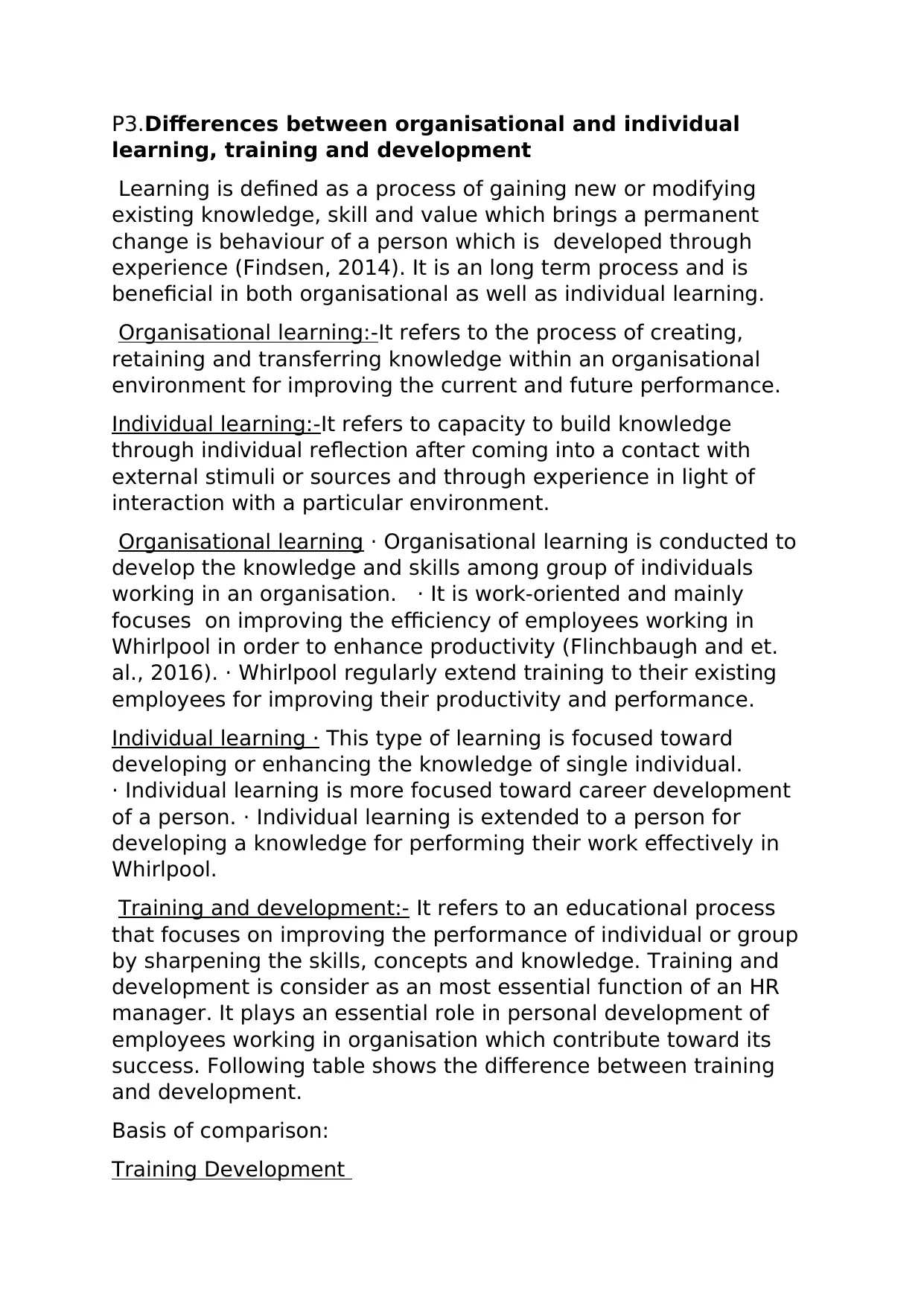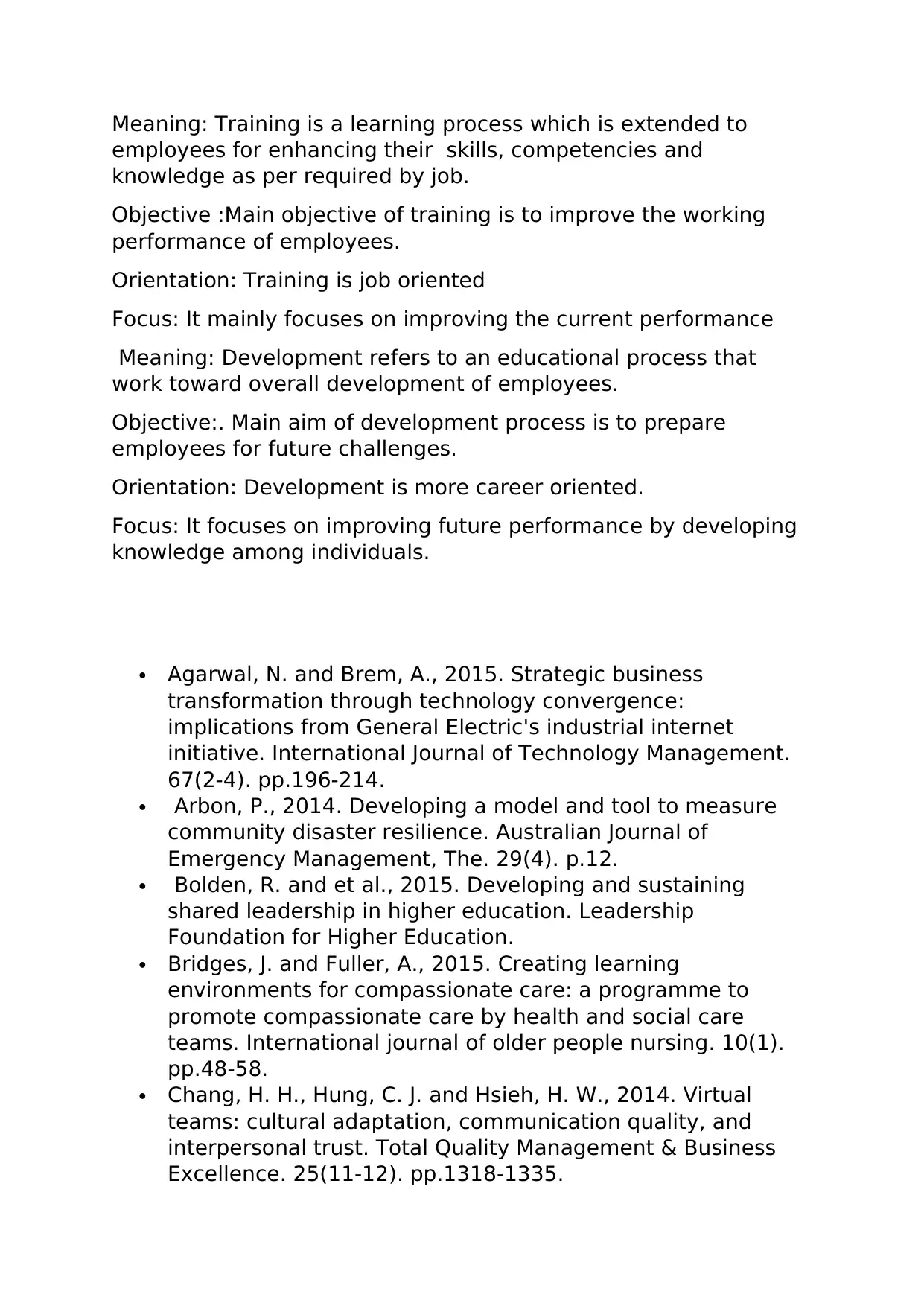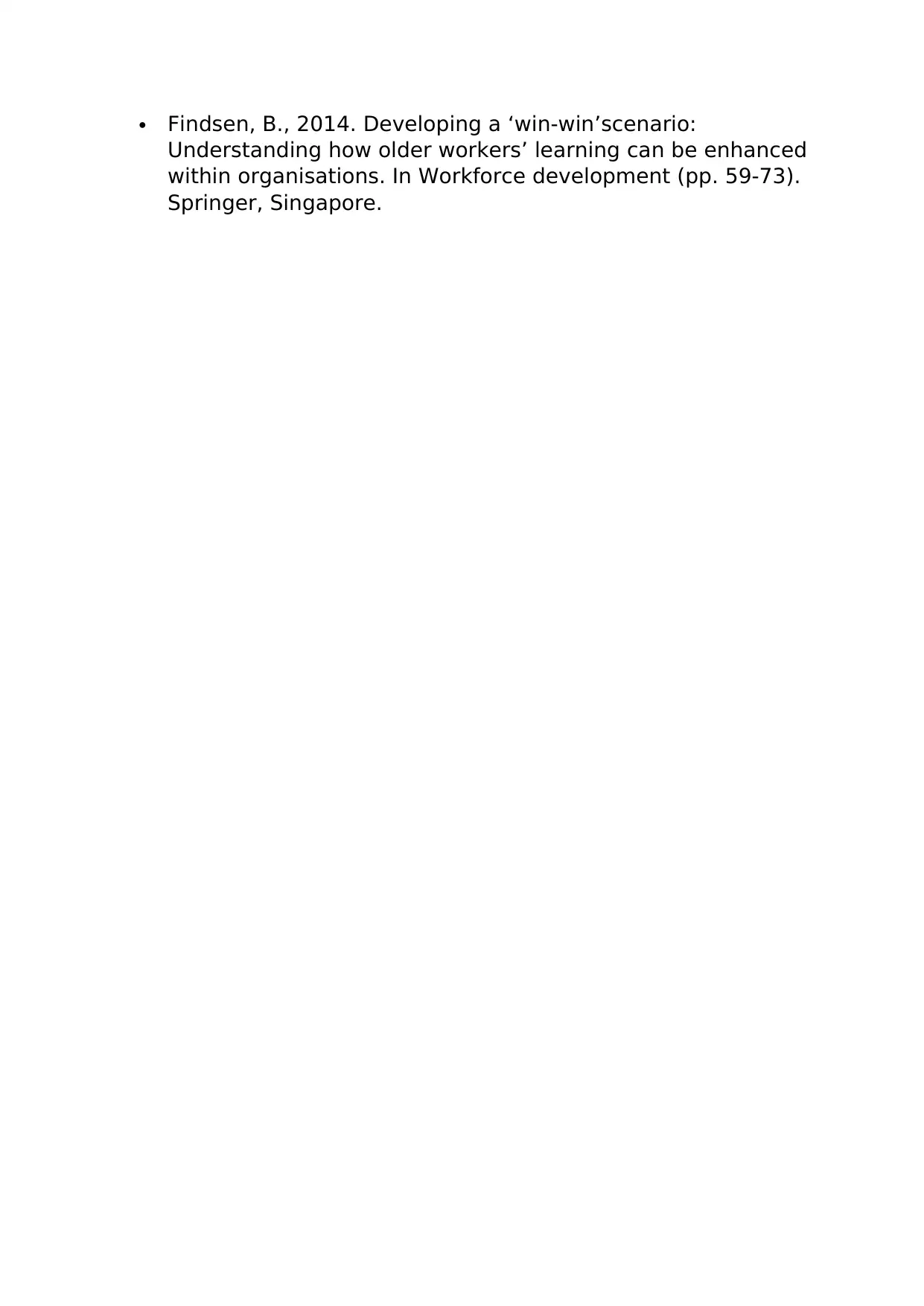Comparative Analysis of Learning, Training, and Development Processes
VerifiedAdded on 2020/10/16
|3
|661
|364
Report
AI Summary
This report provides a comparative analysis of organizational and individual learning, and training versus development. It defines learning as a process of acquiring knowledge and skills, impacting behavior. Organizational learning focuses on improving performance within a group, while individual learning centers on personal development. The report highlights the importance of training for enhancing employee skills, competencies, and job performance, contrasting it with development, which focuses on long-term career growth. The assignment uses Whirlpool as an example to illustrate how organizations can foster learning and development to improve productivity. The report also includes a table that differentiates between training and development based on their objectives, orientation, and focus.
1 out of 3










![[object Object]](/_next/static/media/star-bottom.7253800d.svg)